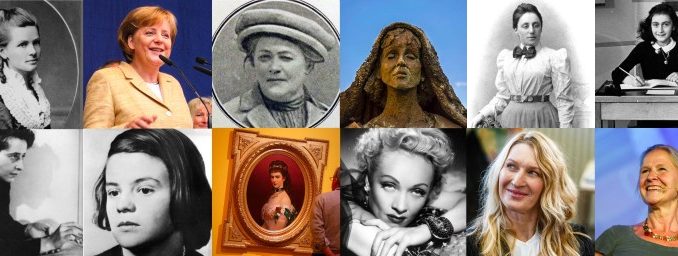
Many of you celebrated the women in your lives (or the women you admire) during International Women’s Day on Thursday.
But did you know that the origins of this global day of observance can be at least partially traced back to German women?
The earliest Women’s Day was held in New York City in 1909 in concurrence with an 11-week strike for women’s rights, but it wasn’t until 1910 that other countries got involved. In August of that year, an International Socialist Women’s Conference was organized in Copenhagen, Denmark. During this meeting, German Socialists Luise Zietz, Clara Zetkin and Käte Duncker advocated for the establishment of an annual Women’s Day. They had been inspired by the American observance during the prior year.
“When the men are silent, it is our duty to raise our voices on behalf of our ideals,” Zetkin said.
One year later, on March 19, 1911, the world’s first International Women’s Day was marked, with participating countries including Austria, Denmark, Germany and Switzerland (the United States held its observance on a different day). Women in Europe took to the streets with posters and signs, advocating for their right to vote and hold office, among other topics.
Although several women played a role in the establishment of International Women’s Day, Zetkin is perhaps the most well known. Zetkin was active in the Social Democratic Party of Germany, the Independent Social Democratic Party of Germany and later the Communist Party of Germany, which she represented during the Weimar Republic from 1920 to 1933.
Although the roots of International Women’s Day were tied to socialism, the day of observance has evolved over time. This changed when the United Nations began celebrating the day in the year 1975 (the “International Women’s Year”). Two years later, the UN General Assembly invited all of its member states to declare March 8 as the UN day for women’s rights.
In honor of International Women’s Day, Germany in the USA compiled a list of 12 German women who made a difference in the world.
1. Hildegard von Bingen
Hildegard von Bingen (also known as Saint Hildegard) is the oldest person on this list. This influential German woman is largely considered the founder of scientific natural history in Germany. She was a Benedictine nun who was also an abbess, artist, author, composer, pharmacist, poet, preacher, mystic and theologian! It seems there is nothing that von Bingen couldn’t do! In 2012, she was named a Doctor of the Church, a rare title only given to saints who contributed heavily with their theological writings. Only three other women in history have received this title.
2. Empress Elisabeth of Bavaria („Sissi“)
Many of you may have watched or heard about a royal Austrian woman nicknamed “Sisi”. Elisabeth of Bavaria was born into a royal family in Munich, Germany, which was part of the Kingdom of Bavaria at the time. At the age of 16, she married Emperor Franz Joseph I and became the Empress of Austria and Queen of Hungary. Her biggest achievement was helping to create the dual monarchy of Austria-Hungary in 1867. She was killed during an anarchist assassination while in Geneva in 1898.